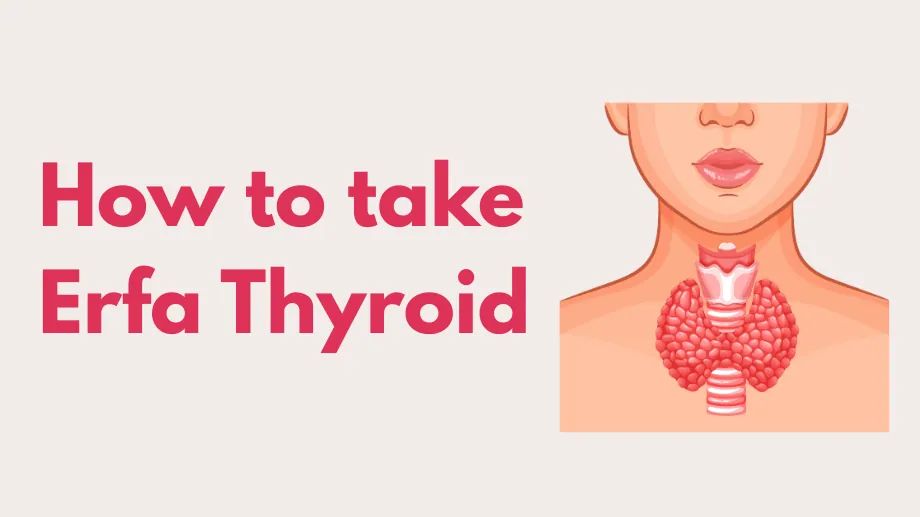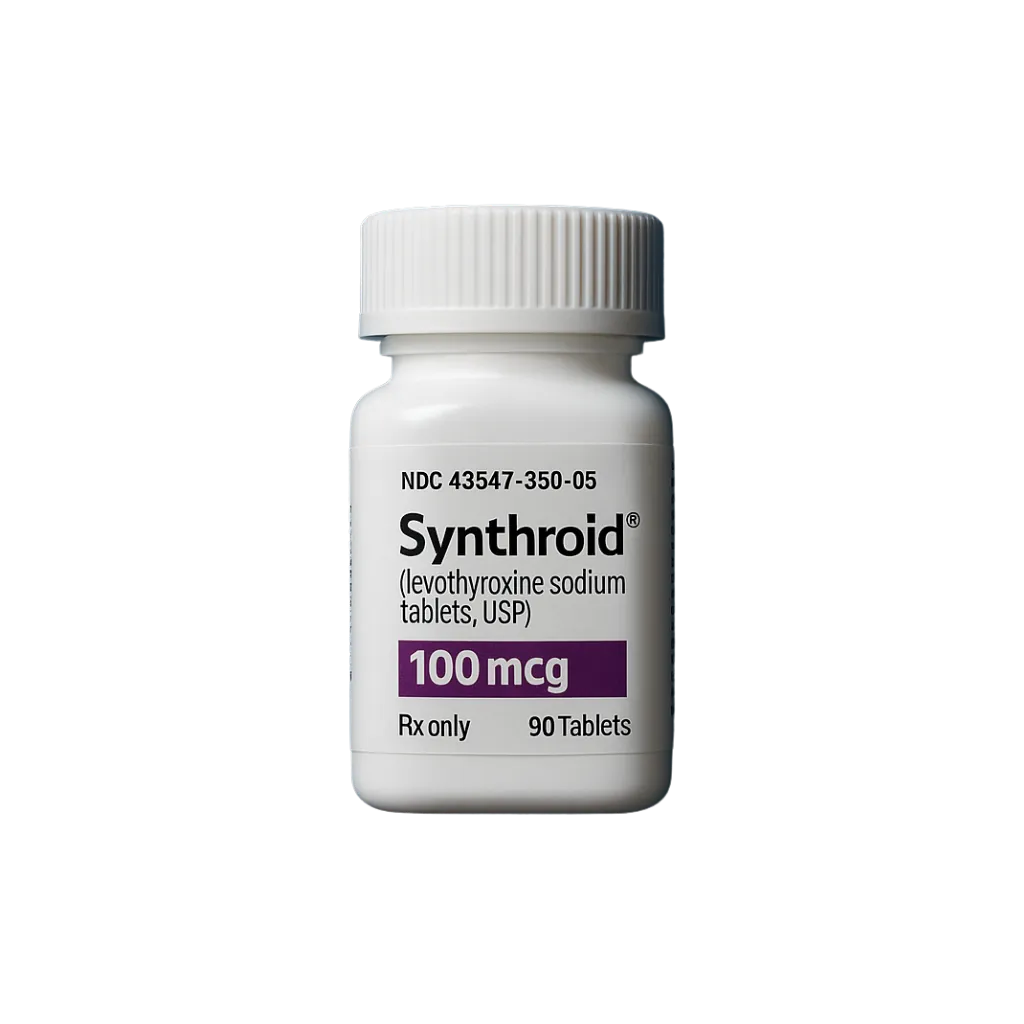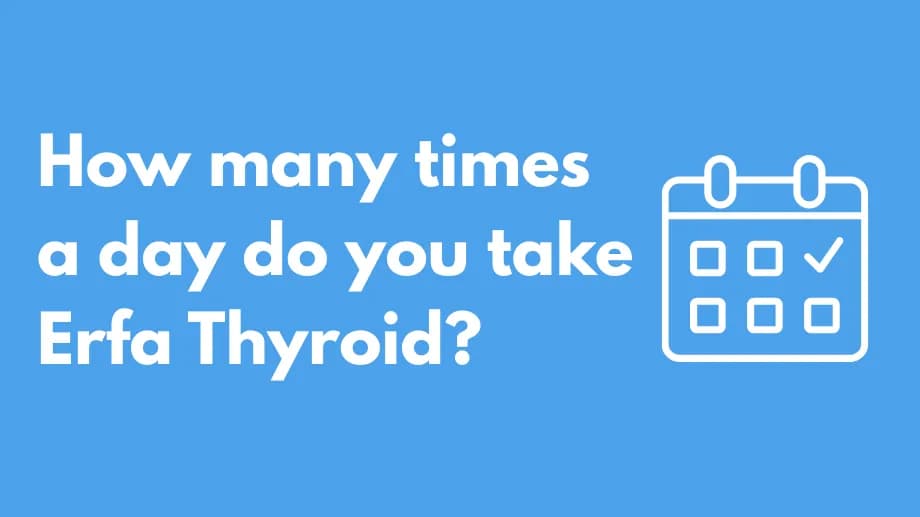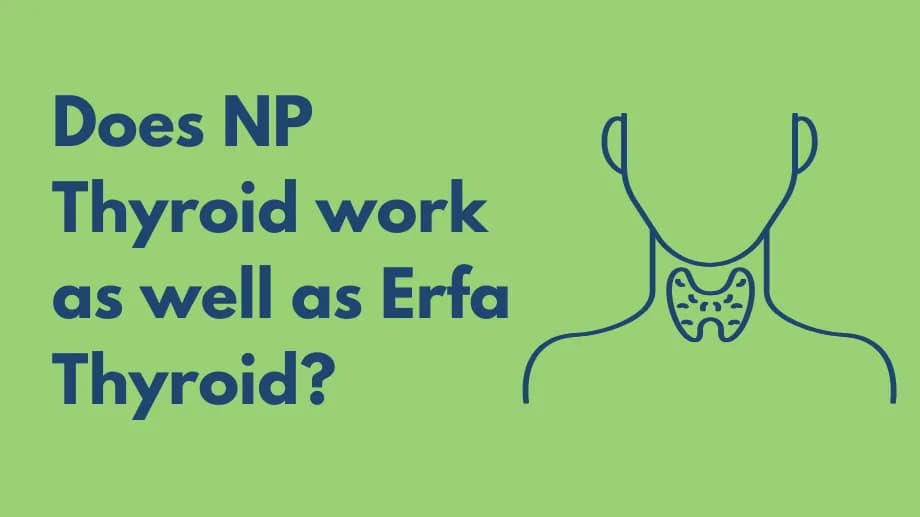How to take Erfa Thyroid?

ERFA Thyroid (natural desiccated thyroid) contains T3 and T4 hormones derived from pig thyroid glands. It replaces deficient thyroid hormone in hypothyroidism. Your provider will start at a low dose and adjust based on symptoms and blood tests. Full symptom improvement may take several weeks.
Administration guidelines
- Take on an empty stomach with a full glass of water
- Wait 30–60 minutes before eating or drinking anything else
- Take at the same time each morning
Drugs and foods that reduce absorption
Wait at least 4 hours after ERFA Thyroid before taking:
- Fiber, iron, and calcium supplements
- Antacids containing calcium, aluminum, or magnesium
- Proton pump inhibitors (e.g., omeprazole, lansoprazole)
- Simethicone
- Cholestyramine and similar bile-acid binders
Avoid near-dose consumption of:
- Coffee
- Soy products
- Grapefruit and grapefruit juice
- Raw cruciferous vegetables (broccoli, kale, cauliflower)
- High-fiber or high-calcium foods
Shop Medications
Other thyroid medication options
- T3 only: liothyronine (Cytomel)
- T4 only: levothyroxine (Synthroid, Levoxyl)
- Combination T3/T4: separate tablets or compounded
- NDT products: NatureThroid, WP Thyroid, Armour Thyroid, NP Thyroid, ERFA Thyroid
Common side effects (usually due to excessive dose)
- Headache
- Nausea, vomiting
- Irregular heartbeat, chest pain
- Tremors, anxiety, irritability
- Diarrhea
- Muscle weakness
- Insomnia
- Hair loss
- Weight loss
- Irregular menstruation
- Skin rash
Serious side effects (seek immediate care)
- Allergic reactions: hives, swelling, difficulty breathing
- Heart attack: chest pain, sweating, dizziness, rapid pulse
- Heart failure: shortness of breath, fatigue, swelling ankles/feet
Medications affecting ERFA Thyroid absorption
- Antacids (Tums, Mylanta)
- PPIs (omeprazole, esomeprazole, lansoprazole)
- Diabetes drugs (insulin, oral agents)
- SSRIs (fluoxetine, sertraline)
- TCAs (amitriptyline, desipramine, doxepin)
- Hormonal therapies (birth control pills, HRT)
- Antibiotics (ciprofloxacin, rifampin)
- Bile-acid binders (colestipol, cholestyramine, colesevelam)
- Warfarin
- Lithium
- Phosphate binders (sevelamer)
Common causes of hypothyroidism
- Hashimoto’s disease (autoimmune thyroid destruction)
- Thyroid surgery (partial or total thyroidectomy)
- Neck/head radiation therapy
- Medications (lithium, amiodarone)
- Thyroiditis (infection or autoimmune)
- Congenital absence or dysfunction of thyroid
- Pituitary disorders (low TSH production)
- Pregnancy-induced hypothyroidism
- Iodine deficiency







